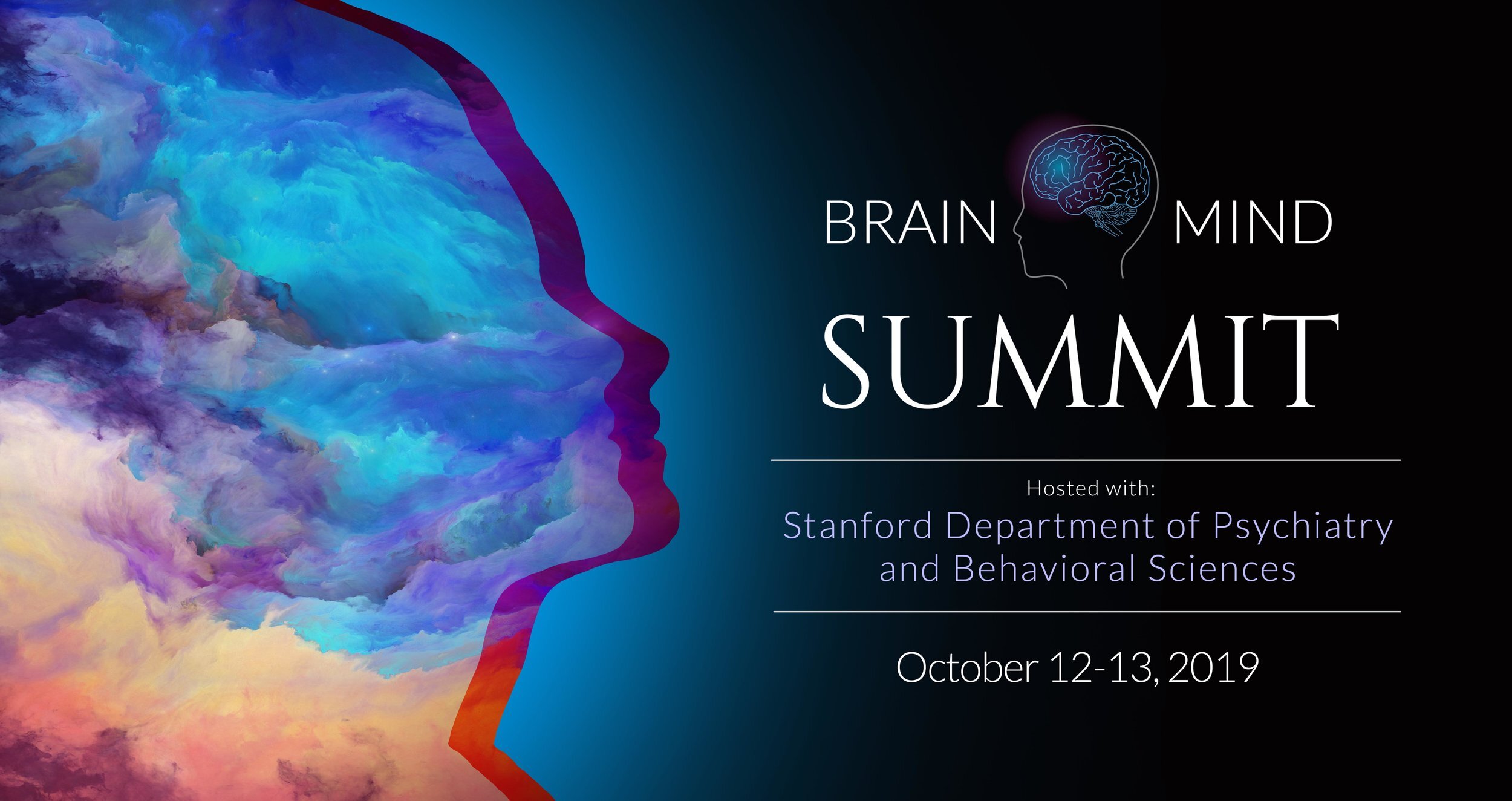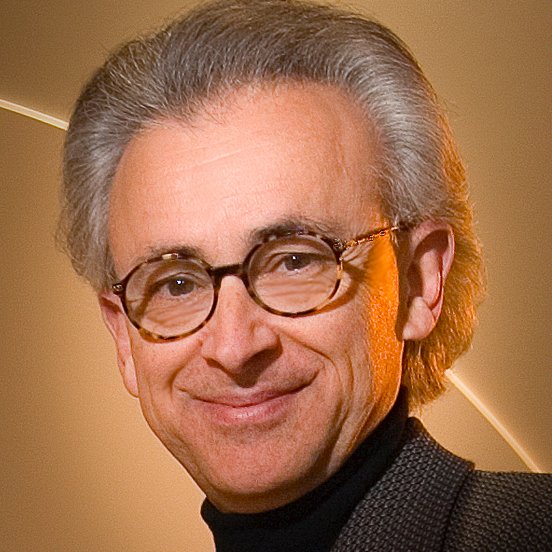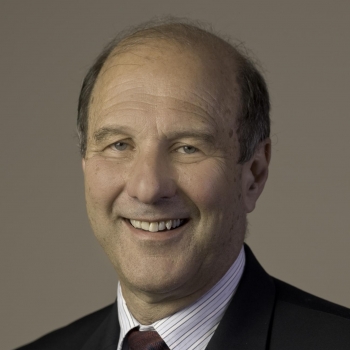SATURDAY, October 12th, 2019
8:00 AM Breakfast & Registration
9:00 AM Welcome to BrainMind at Stanford with Laura Roberts, Michael McCullough, Juan Enriquez, and Diana Saville
Musical Performance by Elena Georgieva, researcher, Stanford Center for Computer Research in Music and Acoustics
9:20 AM Plenary Session Supported by the Tianqiao and Chrissy Chen Institute:
Disruptive Psychopharmacology: Are the 60’s Back?
Robert Malenka, MD, PhD
Nancy Friend Pritzker Professor in Psychiatry Behavioral Sciences at Stanford University, Associate Chair, Department of Psychiatry and Behavioral Sciences, Deputy Director, Stanford Neurosciences Institute.
The Baby Brain
Patricia Kuhl, PhD
Bezos Family Foundation Endowed Chair in Early Childhood Learning, Co-Director, Institute for Learning & Brain Sciences, Professor, Speech and Hearing Sciences, University of Washington
The e-Brain Model
Magali Haas, MD, PhD
CEO & President, Cohen Veterans Bioscience
Qi-Gong Exercises with Dr. Guan-Cheng Sun and William Spear
Engineering a New Era of Psychiatric Therapeutics
Amit Etkin, MD, PhD
Professor, Department of Psychiatry and Behavioral Sciences, Wu Tsai Neurosciences Institute, Stanford University, and VA Palo Alto
BrainMind - The Path Ahead
Michael McCullough, MD
Founder, BrainMind, Entrepreneur in Residence, Greylock Partners
10:30 AM Break
11:15 AM Plenary Session
Socioeconomic Status and the Brain: Prospects for Neuroscience-informed Social Policy
Martha Farah, PhD
Director, Center for Neuroscience & Society, Walter H. Annenberg Professor in the Natural Sciences, University of Pennsylvania
Circadian Metabolism for Brain Health
Satchinanda Panda, PhD
Professor, Regulatory Biology Laboratory, Salk Institute for Biological Studies
HypNOpioids – Pain Relief Without Drugs
David Spiegel, MD
Wilson Professor and Associate Chair of Psychiatry & Behavioral Sciences, Director of the Center on Stress and Health, and Medical Director of the Center for Integrative Medicine Stanford University
Stanford Stanford Research Translation Accelerator Program (RTAP) Presentations - Introduced by Amit Etkin and Sujay Jaswa
Hadi Housseini, PhD - Wearable Imaging: Tracking Brain Function “in the Wild”
Karen J. Parker, PhD - Revolutionizing Detection of Autism: A Laboratory-Based Diagnostic Test
Eric Stice, PhD - Train Your Brain for Healthy Eating: Targeting Neural Circuits to Sustain Weight Loss and Prevent Obesity
12:45 PM Lunch with Speakers, Experiential NeuroLab opens
1:45 PM Guided Meditation led by Hui Qi Tong, PhD, Clinical Associate Professor S,tanford University School of Medicine
2:15 PM Musical Performance by Fernando Lopez-Lezcano, composer; and lecturer, Stanford Center for Computer Research in Music and Acoustics
2:30 PM Entrepreneur Spotlight supported by Wilson Sonsini Goodrich & Rosati
Stealth mode neurotechnology companies will unveil their breakthrough drug discovery and delivery platforms.
Kenneth Irving - Rocketscience
Matt Angle - Paradromics
Saul Kato - System1 Biosciences
Kunal Ghosh - Inscopix
3:30 PM Breakout Discussion Tables
In Fisher Hall":
Strategic Philanthropy - Michael McCullough, MD, Calvin Nguyen
Alzheimers’ Prevention and Genetic Risk - Richard Isaacson, MD and Marwan Sabbagh, MD
In the Courtyard:
Flow States, Imagination, and Creativity - John Seely Brown, PhD and Rodney Mullen
Psychedelic Medicine - Charles DeBattista, MD
Opportunities and Threats Using Your Brain Data - Amanda Pustilnik, JD
Dynamic Neurostimulation - Mahendra T. Bhati, M.D.
The Brain in Childhood - David Hong, MD and Karen Parker, PhD
Who’s Really In Control? Quantifying the Influence of the Unconscious - Heather Berlin, PhD, MPH
Being You - Anil Seth, DPhil
Mindfulness in Integrative Medicine - Hui Qi Tong, PhD
Memories and Meaning - Sharon Naparstek, PhD
Quantum Consciousness - Stuart Hameroff, MD
BCIs: Past, Present, and Future - Tim Mullen, PhD
Entrepreneur Tables: Rocketscience, Paradromics, System1 Biosciences, Inscopix
4:50 PM Closing Remarks
6:00 PM Reception
——————
6:00 PM By Special Request Only) Dinner exploring innovative work on Alzheimer’s Prevention and Genetic Risk with Dr. Richard Isaacson, Director of the Alzheimer’s Prevention Clinic, Associate Professor of Neurology, Assistant Dean of Faculty Development and Director of the Neurology Residency Program at Weill Cornell Medicine and NewYork-Presbyterian Hospital, Dr. Marwan Sabbagh, Director of the Lou Ruvo Center for Brain Health at Cleveland Clinic Nevada, Camille and Larry Ruvo Endowed Chair for Brain Health, and Clinical Professor, Department of Neurology, UNLV, and Dr. Robert Mahley, President Emeritus and Founder of the J. David Gladstone Institutes and Professor of Pathology and Medicine at UCSF.
7:00 PM Unconference-style Dinners will be available for sign-up during the summit: groups of participants can claim four sets of restaurant reservations (for 9) starting at 7:00pm.
9:30 PM After-hours at Madera, Menlo Park

























































